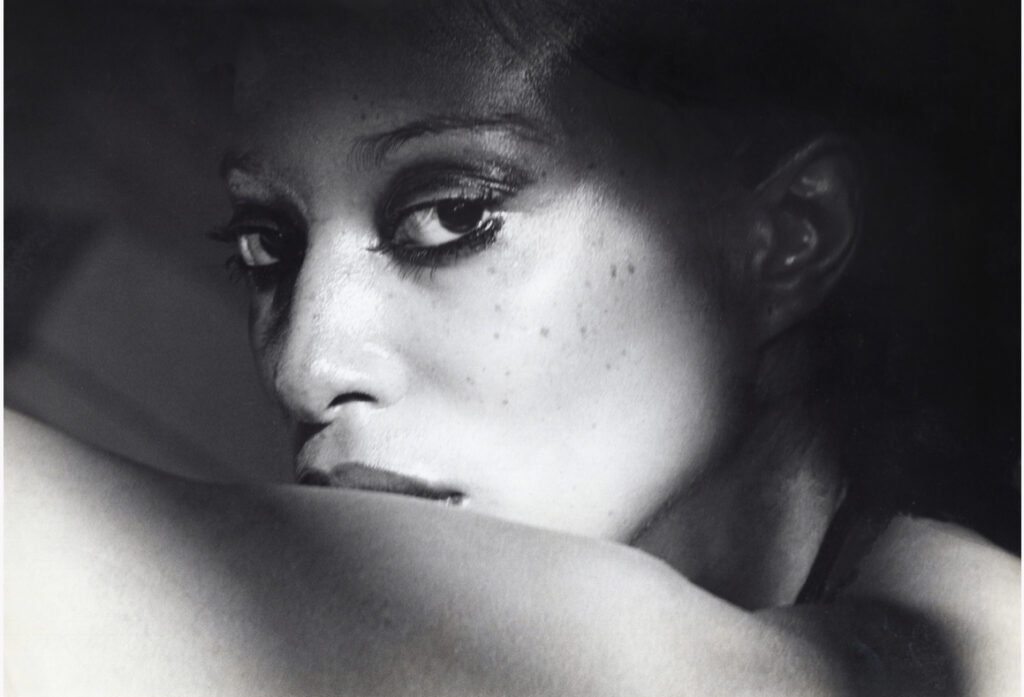Before there was Beverly Johnson, Naomi Campbell or Tyra Banks, there was Donyale Luna.
Born Peggy Ann Freeman, this ambitious young Black woman from Detroit paved the way for all Black models who’ve ever graced a catwalk or been featured in the coveted pages of fashion magazines.
Unfortunately, little is known about the model who was the first Black woman to appear on the cover of both Harper’s Bazaar (1965) and Vogue (1966).
HBO is set to change that with its new documentary ”Donyale Luna: Supermodel.” The film, which premieres today (September 13) puts the groundbreaking model in the spotlight and shares intimate details of her skyrocket success and the perils of racism, discrimination and loneliness that came with it.
A true trailblazer, Luna’s remarkable life and career are chronicled in this film. Often misunderstood, her unique beauty, unmatched confidence and alluring aura also take center stage.
I recently caught up with the film’s director, Nailah Jefferson to get some insights into her filmmaking process, her thoughts on Luna and more.

Check out the Q&A:
Brown Girl Gumbo: What inspired you to make this film? Why was it important to tell Donyale Luna’s story?
Nailah Jefferson: When Jeff Friday, the CEO of the American Black Film Festival, approached me about directing a documentary about Donyale Luna I was immediately intrigued.
Not only because I’ve loved fashion and models since I was a little girl, but also because I had bever heard of Donyale Luna. I asked myself, ‘How could I not know that she was the first African American person to cover Harper’s Bazaar and Vogue?’ That immediately piqued my curiosity.
As I began to research Donyale, I realized that the information available about her was pretty thin. Not only that, as I was introduced to her family and friends, I realized that a lot of the information circulating about Donyale is not factual. So it became very important to me to tell the story —through this documentary, of a pioneer who revolutionized modeling and bring her memory and accomplishments back to the masses.
BGG: When did you first learn about Luna?
NJ: I didn’t learn about Luna until 2018 when Jeff Friday took me out to lunch to tell me about the project. Before that I had no idea she existed.
BGG: Describe the process of making this documentary. How long did it take?
NJ: The idea of the documentary was planted in 2012 by the film’s producers Isoul Harris and Melissa Kraemer. For years they worked on decks and in 2018 they were finally able to pitch the idea to Lightbox and the American Black Film Festival who had started a diversity initiative to support Black documentary filmmakers. After that, Jeff brought me into the fold and two years later we pitched to HBO. It’s been a long road but I believe this is the perfect time to share Donyale Luna’s story with the world.
BGG: What was your biggest challenge during the filmmaking process? How did you overcome it?
NJ: The biggest challenge may have been there was no source material or biography that we could pull from. We were writing the story ourselves. But I’m grateful to Luna because she left behind journals, interviews and stories that have tremendously helped in telling her story.
BGG: Has film always been your preferred storytelling method?
NJ: Well I love to write, so it starts there. And in the future there might be a book or a play, but for now, yes film is my preferred storytelling method.
BGG: Why do you think Luna was “forgotten” for so long?
NJ: I think there are a few reasons Luna was forgotten. The first is that she left America in 1965 and although she would come back to visit, Europe really became her home. We were less of a connected world then, so her accomplishments could have been lost for that reason.
Some people think it was because she didn’t fully embrace her Black identity so as a result she wasn’t lauded by the Black community.
It could be because the fashion industry may not be willing to discuss how she was treated and that means confronting the truth about some fashion heroes and role models.
BGG: In three words, how would you describe Luna?
NJ: Fierce, Free, Inventive!
BGG: What do you hope people gain from watching this documentary?
NJ: I hope that people can be inspired to live unapologetically just as Donyale Luna did.
Were you familiar with Donyale Luna before this documentary? Let us know in the comments.




Speak Your Mind